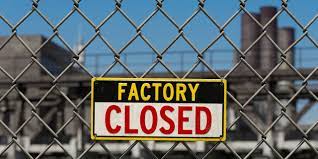In Bangladesh, the sudden rise in protests among garment workers reflects their ongoing call for better wages. For years, these workers have endured a minimum monthly wage of $95, prompting their united demand for an increase to $208. The protests grew more strong, resulting in clashes between the demonstrators and authorities. Three workers lost their lives, and numerous others were injured in these confrontations.
In Bangladesh, the garment industry, primarily fueled by women, stands at the heart of the economy. These workers face challenging work conditions and inadequate pay, encouraging their strong demand for improved wages. This exclamation resulted in 150 factories shutting down, and now 11,000 workers are dealing with legal repercussions for participating in the protests. The formation of tear gas and rubber bullets by law enforcement further escalated the already tense situation, heightening the volatility in the environment.
Amidst this chaos, 18 global brands, including household names like H&M, Levi’s, Gap, and Puma, intervened. They contacted the Prime Minister of Bangladesh, stressing the need for peaceful talks and the importance of a new wage that fits the workers’ needs. Even though they can’t set wages, their strong connections in the garment industry make their involvement really important in these discussions.
Elizabeth Cline, who specializes in Fashion Policy at Columbia University, emphasized the crucial need for brands and retailers to confront the issue of wages. She pointed out the industry’s reluctance to shoulder responsibility and underscored the pressing necessity to revamp pricing structures to ensure fairer wages for workers.
Bangladesh’s economy heavily relies on its garment sector, which constitutes a staggering 85% of the nation’s $55 billion annual exports through approximately 3,500 factories. The strong relationship between these factories and renowned global brands such as Levi’s, Zara, and H&M underscore their substantial influence, particularly in this critical period.
The declare underscore a collective eagerness for equitable wages and better working environments. The garment industry’s significance in Bangladesh’s economy, it is critical for everyone to engage in meaningful discussions that prioritize both the workers’ well-being and the nation’s economic growth. It’s an important moment that needs everyone to work together and have honest talks to overcome challenges and build a better future that lasts.

